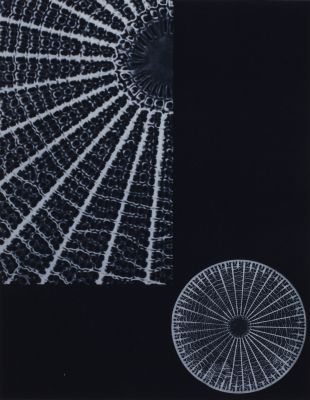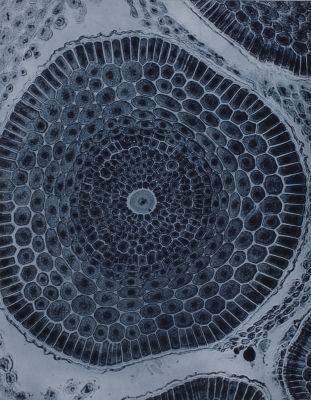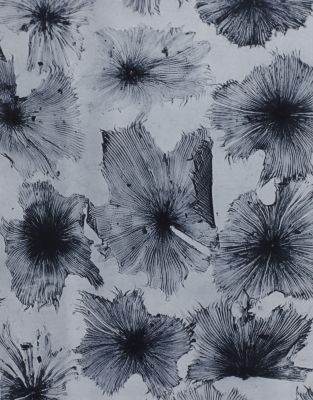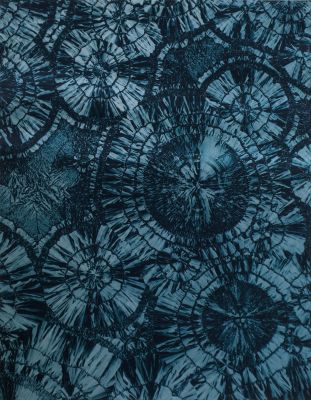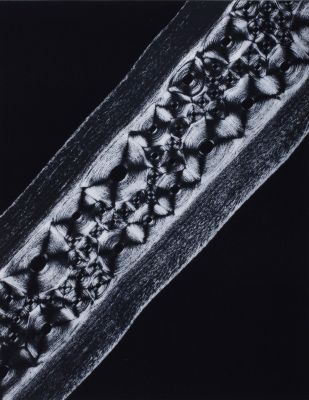
Title
Panche XV Gynérium argenvenum (graminée)Artist
Albin-Guillot, Laure (French, 1892-1962)Publication
Micrographie DécorativeDate
1931Process
PhotogravureAtelier
Draeger FrèresImage Size
21.5 x 27.4 cm
Conceived by Albin-Guillot as a testament to her recently deceased husband (as a scientist he prepared specimens for the microscope) who died in 1929, Micrographie Décorative is a wonderful depiction of natural abstraction. The prints by Draeger Frères after Albin-Guillot’s photographs are of such things as rhinoceros horn, horse’s hooves, whale’s cartilage and uric acid which when magnified bear no relation to their original forms, transforming rather into shimmering repetitive motifs and textural mosaics. Micrographie Décorative was favourably received, the shimmering patterns echoing the lapidary and marquetry work of Art Deco designers’. [1]
Albin-Guillot became interested in photography shortly after marrying in 1901. She was central to photographic circles in Paris during the 1920s, at which time she began sending her personal work to photographic salons. Between 1924 and 1937, she exhibited her soft-focus portraits and nudes (both male and female) primarily in Paris, but also in Prague, Barcelona, London, and New York. Her images appeared regularly in Vu, Arts et Métuers Graphiques, and other French periodicals. Among the books she illustrated were Henry de Montherlant’s La Deesse Cypris (1932), Paul Valery’s Le Narcisse (1936), and Pierre Louÿs’s Douze Chansons de Bilitis.
During the 1930s, Albin-Guillot served as the head of the photographic archives of the L’Ecole des Beaux Arts and president of the French Société des Artistes Photographes. In additional to pictorial and micrographic work she produced documentary and fashion photographs. Some of her modernist pictures were included in the important 1951 German exhibition Subjektive Fotograpfie, organized by Otto Steinert and Franz Roh. Laure Albin-Guillot died in Paris on February 22, 1962.
This landmark portfolio is comprised of twenty photogravure plates made in a variety of inks and papers, including silver and gold foil, all printed on or tipped to a heavy stock with window over mats. The edition was limited to 305 copies (5 hors commerce), 20 photographic prints in passe-partout mounts.
References
[1] Parr, Martin, and Gerry Badger. The Photobook: A History. London: Phaidon, 2014. p. 80
Foster, Sheila J, Manfred Heiting, and Rachel Stuhlman. Imagining Paradise: The Richard and Ronay Menschel Library at George Eastman House, Rochester. Göttingen: Steidl, 2007 p. 19
La Photographie. Collection Marie-Thérese et André Jammes Paris 27 October 1999 Lot 214




